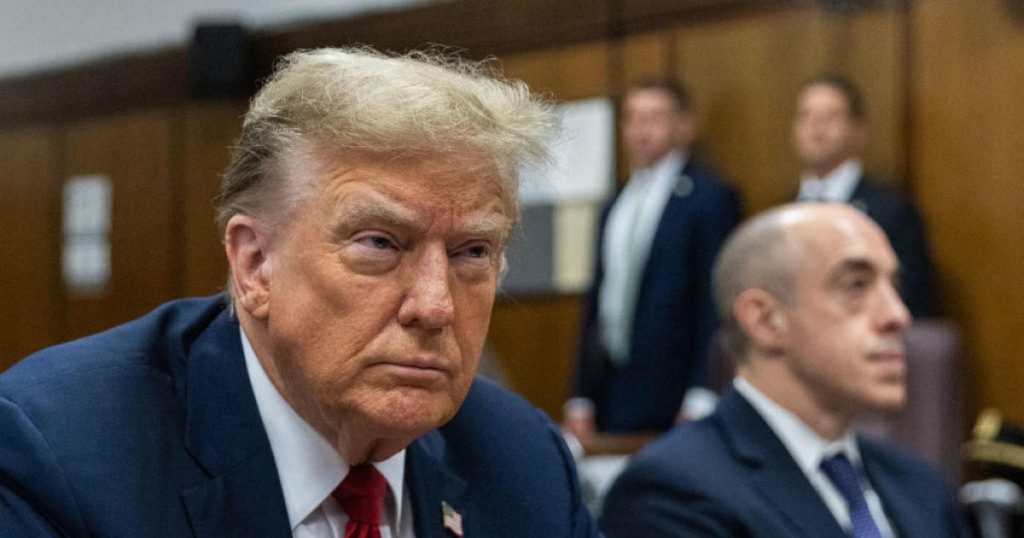Jury selection for former President Donald Trump’s criminal trial in New York continues for a second day, with the defendant present as potential jurors are seated. The first group of jurors sworn in on Monday underwent pretrial arguments and were dismissed if they couldn’t be fair and impartial. The slow process of selecting suitable jurors is expected to last at least a week, with more individuals facing questioning on the second day of proceedings.
Trump, who is charged with 34 state felony counts related to falsification of business records over a payment made to Stormy Daniels before the 2016 election, has pleaded not guilty, alleging the prosecution is politically motivated to prevent him from running for president again. This case marks the first of four criminal prosecutions against Trump to go to trial. Judge Juan Merchan, overseeing the case, made several rulings during the trial’s first day, both in favor of prosecutors from Manhattan District Attorney Alvin Bragg’s office and Trump’s attorneys.
During the pretrial arguments, Trump was seen appearing to fall asleep at the defense table, prompting his attorney to wake him up. The trial is expected to last six to eight weeks, meeting every weekday except Wednesdays, with some shortened days for the Passover holiday. This schedule limits Trump’s ability to campaign, which he claims is evidence of political bias. Merchan emphasized that Trump is required to attend each day of the trial and would face arrest for failing to appear, denying a request for him to attend Supreme Court arguments over his claim of presidential immunity in a federal case.
The trial’s process involves a rigorous selection of jurors, as the court works towards seating a fair and impartial jury. The proceedings are monitored closely by the judge, who makes rulings on various matters raised by both the prosecution and defense. Trump’s defense team is focused on highlighting potential biases and ensuring a fair trial for the defendant. The trial is a significant moment in legal history, as it marks the first criminal prosecution against a former U.S. president to reach a trial stage.
As the trial progresses, the court will continue to select jurors, listen to arguments from both sides, and make rulings on various issues that arise during the proceedings. Trump’s defense will work to present their case, while prosecutors aim to secure a conviction. The outcome of this trial will have far-reaching implications, setting a precedent for how legal matters involving former presidents are handled and ensuring accountability for individuals holding the highest office in the country. The trial is a crucial test of the justice system’s ability to uphold the rule of law and hold even the most powerful individuals accountable for their actions.


